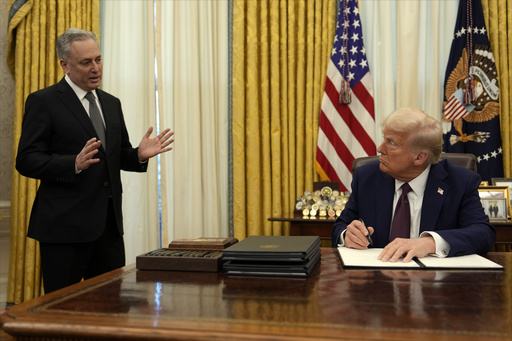In a recent news conference, David Sacks, who is leading cryptocurrency efforts under the Trump administration, unveiled a new congressional working group aimed at streamlining cryptocurrency regulations. However, the announcement left many in the crypto community feeling unimpressed. Sacks acknowledged the lack of excitement, mentioning conversations on social media platform X (formerly Twitter) where users expressed disappointment. Despite the lukewarm reception, Sacks highlighted the significance of having both the White House and prominent members of Congress focused on enacting key crypto legislation within the upcoming year—potentially as soon as the next six months. He considers this progress unprecedented in the current political landscape.
Sacks’ reaction underscores a broader sentiment in Washington, D.C., where the cryptocurrency sector, having invested heavily in electing supportive lawmakers, now feels empowered and impatient to solidify its influence within both political and financial frameworks. Ji Hun Kim, the acting CEO of the Crypto Council for Innovation, voiced urgency during a recent House committee meeting dedicated to discussing advancements in digital assets.
Since Trump’s presidency began, the cryptocurrency industry has achieved considerable victories, such as the elimination of a notable accounting regulation by the U.S. Securities and Exchange Commission (SEC) and an executive order that initiated a study on crypto regulations. The order also suggested forming a government cryptocurrency reserve within 180 days. As the industry calls for decisive action, some firms are retaliating against past adversaries. For instance, Tyler Winklevoss, co-founder of Gemini, declared the exchange would refrain from hiring MIT graduates to protest the university’s decision to employ former SEC Chairman Gary Gensler.
Winklevoss saw this as more than just a corporate stance; he emphasized “no hiring” from MIT for their summer intern program. This revelation followed a similar declaration from the CEO of Coinbase, who vowed to steer clear of law firms that employed any of Gensler’s former team members, labeling their actions as detrimental to the cryptocurrency sector. Gensler’s SEC was notably aggressive when it came to regulating digital assets.
In recent weeks, Congress has conducted multiple hearings where advocates for cryptocurrency aired their grievances regarding treatment under the Biden administration, especially with allegations that regulators compelled banks to sever connections with crypto companies. With new Republican leaders at the SEC voicing critiques of previous management’s approach, change appears on the horizon, albeit slowly. Commissioner Hester Peirce, leading a newly formed crypto task force, urged patience, commenting that rectifying past missteps will take time.
The SEC has recently requested a federal court to pause the litigation against Binance, the largest cryptocurrency exchange globally, as its leadership reevaluates prior enforcement decisions. Sacks and supportive legislators are optimistic about enacting two crucial pieces of legislation. One proposal would outline the regulatory framework and reserve criteria for stablecoins, cryptocurrencies that usually are pegged to traditional currencies like the dollar. The other initiative seeks to clarify operational rules for crypto exchanges and delineate which digital assets will be classified as securities versus those categorized as commodities.
Despite previous legislative efforts stalling, many in the crypto space are hopeful about bipartisan support for these new measures, aided by the significant financial support for political campaigns that the industry has provided. Fairshake, a dedicated crypto super PAC known for its hefty contributions in past elections, has reportedly begun to build its funds for the upcoming midterms, with a notable victory being the defeat of former Senator Sherrod Brown of Ohio, a recognized critic of cryptocurrencies.
Investor Anthony Scaramucci pointed out that the Democratic party appears to have grasped the landscape, acknowledging that they would rather not face a united crypto opposition during the 2026 campaign cycle. The fluctuations in the popularity and clout of the crypto sector echo the volatile nature of digital asset prices. A few years back, crypto companies dominated Super Bowl ad slots, and prominent figures in the industry, like Sam Bankman-Fried, enjoyed privileged access to political power.
However, following the collapse of Bankman-Fried’s enterprise amid scandals, public interest in cryptocurrency waned, though it has revived somewhat with Trump’s electoral success. Yet, amidst this rallying, discussions around crypto legislation could also reveal divisions within the sector, which harbors a diverse range of opinions and personalities.
For example, the CEO of Ripple stirred controversy by suggesting that a U.S. government cryptocurrency reserve should include various digital assets rather than solely Bitcoin, the leading cryptocurrency—a notion that may not resonate well with Bitcoin loyalists. In addition, a report from JPMorgan raised concerns about how certain aspects of the proposed stablecoin regulations regarding reserve holdings could create significant challenges for Tether, the foremost stablecoin. The CEO of Tether, who has recently moved operations to the more crypto-friendly nation of El Salvador, dismissed the report’s conclusions on social media, labeling the bank’s analysts as “salty.”




